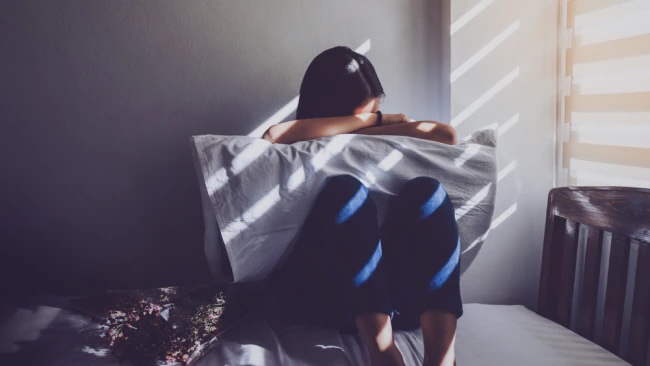
If you didn’t know it already, sleep is absolutely imperative for your wellbeing. Image: iStock
Feeling stressed, anxious and depressed most days of the week? If you’re also sleeping poorly, there could be a connection, and I’m here to share the science behind it.
Remember – these effects are reversed with quality sleep… so make sure it’s one of your top goals in 2021.
Because really, stress, anxiety, feeling flat and moody? No thanks. Spending the day feeling vibrant yet calm and centred? Yes please.
Like what you see? Sign up to our bodyandsoul.com.au newsletter for more stories like this.

Sleep: it’s free. And we all want more of it, so why is it so hard to get? Image: Unsplash
Why lack of sleep leaves you… stressed and anxious
Notice you can’t switch off after sleeping barely a wink? It’s not your imagination, it’s biochemistry. Academic research has found that just one night of insufficient sleep can increase cortisol levels by 37 percent.
After two nights, cortisol levels increase by 45 percent. As this is an awakening hormone, this can leave you feeling anxious, restless, nervous and unable to ‘switch off’.
Second to that, cortisol also makes you feel stressed throughout the night; cue difficulties in falling and staying asleep, and those dreaded 3am wake-ups.
Interestingly, this is particularly likely if you’re an early riser because you have a biological predisposition to be more anxious than those who prefer late nights.

If you’re an early riser, you have a biological predisposition to be more anxious than those who prefer late nights. Image: iStock
Why lack of sleep leaves you… flat and depressed
Evidence indicates 83 percent of those with depression lack sufficient sleep.
The overarching link between lack of sleep and ‘feeling flat’ boils down to the HPA axis, a brain region controlling emotions: Research shows it becomes overactive.
Initially, this is felt as extra alertness and anxiety, however, prolonged overactivity of this region, the reverse happens: and you feel constantly flat.
Think about it. Towards the end of the year when you’re trying to run at 100 miles an hour, after a while, no amount of coffee or sugar seems to perk you up, right? That’s a sign of adrenal exhaustion, and stems from an prolonged overactivity of the HPA axis.
In contrast to above, early risers are at favour here, it’s night owls that need to be careful. Research shows you’re 20 times more likely to suffer depression compared to those who wake early.

Moodiness is a key trait of those chronically sleeping poorly
Why lack of sleep leaves you… moody and irritable
Emotions are controlled and stabilised by the frontal region. However, when sleep-deprived, this area of the brain is impaired, thus – your mood is up one day, down the next.
Consequently, studies show you’re more likely to conflict with others, perceive a neutral situation as negative and blow things out of proportion.
Moodiness is a key trait of those chronically sleeping poorly – you know, the types who can’t even remember what a good night’s sleep felt like? So if that’s you here, be particularly mindful.
Originally featured on Body and Soul
+ show Comments
- Hide Comments
add a comment